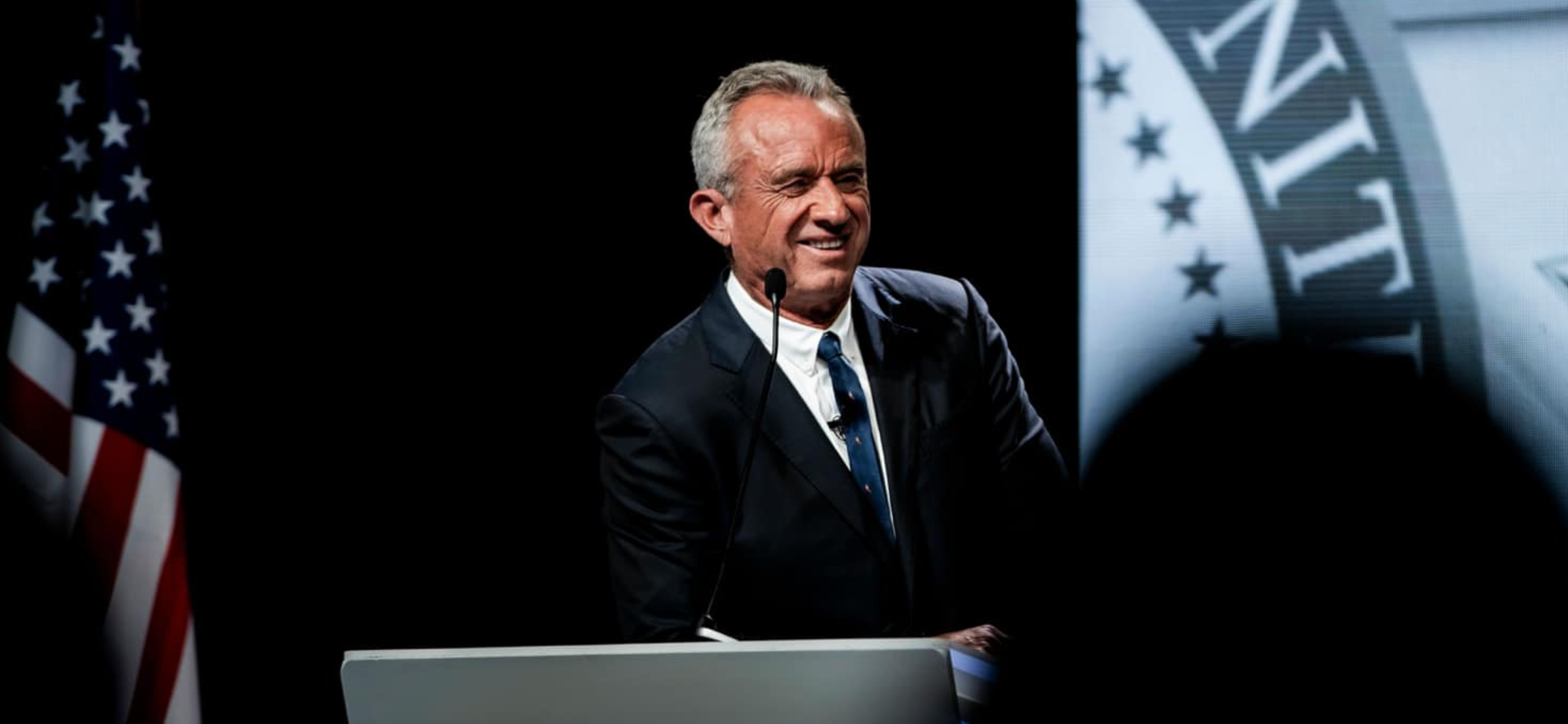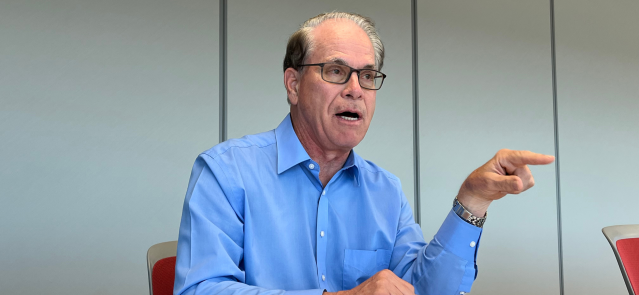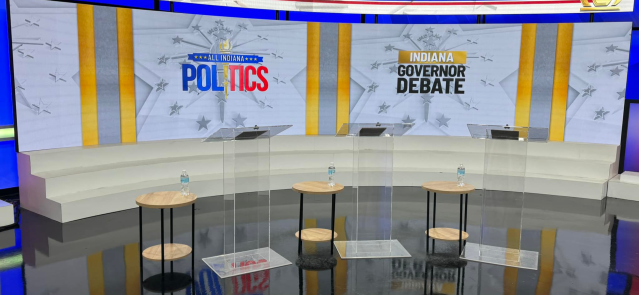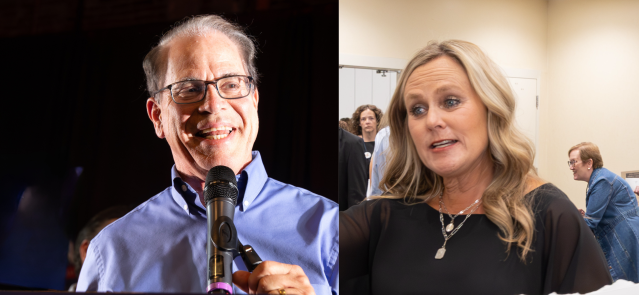Stay ahead of the curve as a political insider with deep policy analysis, daily briefings and policy-shaping tools.
Request a Demo
Independent presidential candidate Robert F. Kennedy, Jr. (Credit: Kennedy campaign)
- County election offices have certified at least 28,000 petition signatures for Kennedy ballot placement of the required 36,943.
- Kennedy’s campaign faces July 15 deadline to submit enough petition signatures to the state Election Division.
- Indiana legislators have ignored calls for easing what voting-rights advocates call one of the country’s tightest ballot access laws.
Robert F. Kennedy Jr. is on the cusp of becoming the first independent presidential candidate to make Indiana’s election ballot in 24 years.
County election offices around the state reported, as of Wednesday, certifying at least 28,000 petition signatures supporting Kennedy being placed on the November ballot.
That review of petitions submitted by July 1 will continue for several more days as the Kennedy campaign looks to file more than the required 36,943 certified signatures of registered voters to the state Election Division by the July 15 deadline.
What Kennedy supporters say
Jennifer Reinoehl, a Granger resident who has helped organize the Indiana petition drive, said Kennedy supporters turned in more than 57,000 petition signatures before more were submitted in a final batch on July 1.
Reinoehl told State Affairs she was confident that the campaign’s mix of volunteers and paid workers had gathered enough signatures. But she was bracing for possible challenges by Democrats and Republicans to block Kennedy from the ballot.
“We’ve been working hard throughout the state and, really, it’s just going to come down to if the state’s going to follow the rules,” Reinoehl said.
The Kennedy campaign’s national media staff didn’t reply to messages from State Affairs seeking comment on its Indiana effort.
Kennedy’s campaign says it has met the requirements for his name to appear on the ballot in 26 states, although not all have affirmed ballot placement. His campaign says it has an aggressive ballot access operation with a $15 million budget aimed at getting Kennedy on the ballot in all 50 states and the District of Columbia.
Indiana’s ballot requirements
Kennedy is seeking to join presumptive Democratic and Republican candidates Joe Biden and Donald Trump, respectively, and Libertarian Chase Oliver on the Indiana presidential ballot.
Libertarian Party candidates have automatically qualified for the Indiana ballot since 1994 with the party’s secretary of state nominee topping 2% of the vote in that race every four years.
Indiana law requires other minor party or independent candidates for statewide races such as president, governor or U.S. senator to gather petition signatures totaling at least that 2% mark — which is currently 36,943 based on the 2022 secretary of state election.
But the task of collecting that many petition signatures has resulted in no such candidates making Indiana’s statewide ballot since Patrick Buchanan’s 2000 presidential campaign.
Supporters of Green Party candidate Jill Stein had fewer than 9,000 signatures certified by Wednesday to place her name on Indiana’s November ballot. No other statewide hopefuls had more than 200 signatures certified, according to state Election Division reports.
Objections to Indiana’s ballot access law
The state Legislature — made up of Republicans and Democrats, with no independents or minor party members — has ignored calls to ease Indiana’s decades-long petition signature requirement. A desire to avoid ballots cluttered with numerous candidates is among the defenses for the current law.
Voting rights advocate Julia Vaughn argues the state’s ballot restrictions contribute to Indiana having among the nation’s lowest voter turnout rates.
“Voters need to have a full array of choices beyond the two major political parties and our ballot access laws make it very difficult for independent candidates to cross that bar,” said Vaughn, executive director of Common Cause Indiana. “Republicans and Democrats over the years haven’t agreed on much when it comes to election issues, but this is one thing that they have worked together on to set a very high bar for independent candidates to have ballot access.”
A federal lawsuit filed on behalf of the Green Party and the Libertarian Party claims Indiana has one of the most restrictive ballot access laws in the country, with effective petition drives costing $500,000 or more.
A U.S. District Court judge upheld the law last year, and the Chicago-based 7th Circuit Court of Appeals has yet to rule on an appeal of that decision after hearing arguments in April.
Reinoehl, the Kennedy campaign petition organizer, contrasted the nearly 37,000 signatures needed to place Kennedy’s name on the ballot with the 4,500 signatures required of Republican and Democratic statewide candidates to make their party’s primary ballots.
“I am an independent and I have been voting independent and writing in the names of my candidates for the past two decades here,” she said. “I, of course, agree that our laws are very biased. Republicans and Democrats have to get 4,500 signatures and for independents to have to get 37,000, [it]is ridiculous.”
Tom Davies is a Statehouse reporter for State Affairs Pro Indiana. Reach him at [email protected] or on X at @TomDaviesIND.
Know the most important news affecting Indiana
Get our free weekly newsletter that covers government, policy and politics that impact your everyday life—in 5 minutes or less.
Braun’s state tax plans come without price tags — or assurances he’ll push for changes
Ending state taxes on retirement income and tips, creating sales tax holidays for back-to-school supplies and indexing state tax deductions to inflation are all on Mike Braun’s list of policy proposals. Some of those suggestions from the Republican gubernatorial candidate, however, have previously been rejected by Republicans who control the state Legislature. Braun’s campaign hasn’t …
5 takeaways from the 2nd gubernatorial debate
Keeping tight to the topics at hand and rarely calling one another out, the three candidates vying to be Indiana’s next governor stuck mainly to the script as they met on the debate stage Thursday. The debate, hosted by WISH-TV in Indianapolis and moderated by WISH anchors Phil Sanchez and Dakarai Turner, was the second …
Here’s how to watch this week’s Indiana gubernatorial debates
The Gist The candidates striving to be Indiana’s next governor will meet on the debate stage several times this week, offering voters a key glimpse into the nominees’ personalities and platforms. Two fellow Midwesterners will also meet for the first time on a national stage when Ohio Sen. JD Vance, a Republican, and Minnesota Gov. …
The COLA for your Social Security
INDIANAPOLIS — You’ll soon hear about the cost-of-living adjustment, or COLA, to the monthly retirement benefit paid by Social Security. That benefit won’t show up until January 2025, but there will be enough time to grouse about it. Pappy Pickel is reading his newspaper to his niece Paula: “According to the information to be had …




